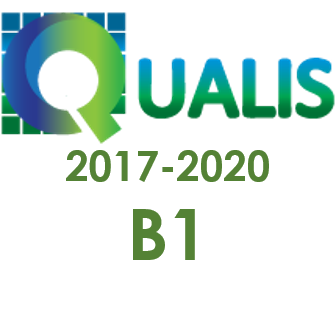Fairy tales and the black child's identity building process
DOI:
https://doi.org/10.22481/odeere.v5i10.7307Keywords:
Tales –fairies- racism- identity -acceptanceAbstract
This text aims to address issues related to the construction of the ethnic / racial identity of the black child, raising discussions about fairy tales, notably Snow White and Sleeping Beauty, and their influence on the process of identity construction, as a single type offering of literary work for children. Based on this assumption, we trace the following objective: to analyze the contribution of fairy tales to the formation of the ethnic / racial identity of the black child, investigating two most popular fairy tales that strengthen a conception of aesthetics that contributes to the strengthening of racism and dissemination of racist practices in society and the consequent low self-esteem of black children. Therefore, the methodology was documentary analysis, with review of the works: Branca De Neve and Sleeping Beauty. This research aims to provide instruments to increase the forms of discussions and debates on the subject, which serves as a support for teachers to develop new conceptions about expanding literary choices and conversations among students so that they only increase learning possibilities. Theoretical debates such as: Gomes (2005), Brandão (1981), Freire (2002) Coelho (2005), Munanga (2003), among others, were brought up to support this research.
Downloads
References
BARTHES, Roland. Mitologias. 11ª Ed. Rio de Janeiro: Bertrand Brasil, 2001
BAUMAN, Z. Modernidade Líquida. Rio de Janeiro: Zahar, 2001
CHIMAMANDA, Ngozi Adichie. O perigo de uma história única. Trad. Julia Romeu. São Paulo: Campanhia das Letras, 2019.
COELHO, Nelly Novaes. Literatura Infantil Teoria Analise Didática. 7º edição. São Paulo. Moderna, 2005
CORSO, Diana Lichtensein. A psicanálise da Terra do Nunca: ensaios sobre a fantasia. Porto Alegre: Penso, 2011
CORSO E CORSO, Diana Lichtensein, Mario. Fadas no divã, psicanálise das histórias infantis. Porto Alegre: Artmed. 2006
DURKHEIM, Émile. Educação e sociologia. 10ª ed. Trad. De Lourenço Filho. São Paulo, Melhoramentos, 1975
FREIRE, Paulo. Pedagogia da autonomia: saberes necessários à prática educativa. 15. ed. São Paulo: Paz e Terra, 2002
GOMES, Nilma Lino. Alguns termos e conceitos presentes no debate sobre relações raciais no Brasil: uma breve discussão. In: Educação antirracista: caminhos abertos pela Lei Federal nº 10.639/03. Brasília: MEC/SECAD, 2005
GONÇALVES, Laiza Karine . A leitura do conto de fadas e o desenvolvimento do imaginário infantil. Pontifícia Universidade Católica do Rio Grande do Sul Faculdade de Letras programa de pós-graduação em letras. 2009
LIBÂNEO, José Carlos. Didática e aprendizagem editora: CORTEZ 1994
LUCKESI, Cipriano Carlos. Educação, ludicidade e prevenção das neuroses futuras: uma proposta pedagógica a partir da Biossíntese. In: LUCKESI, Cipriano Carlos (Org.). Ludopedagogia: Educação e Ludicidade. Salvador: UFBA, Faculdade de Educação, Gepel, 2000.
MUNANGA, Kabengele. Uma abordagem conceitual das noções de raça, racismo, identidade e etnia. In: Seminário nacional relações raciais e educação Penesb. Rio de Janeiro, 2003
PEREIRA, Marcos Emanoel. Psicologia social dos estereótipos. São Paulo: E.P.U., 2002
SILVA, Ezequiel Theodoro da. Leitura na escola e na biblioteca. 4ª ed. –Campinas, São Paulo: Papirus, 1993
Downloads
Published
Issue
Section
License
Copyright (c) 2020 ODEERE

This work is licensed under a Creative Commons Attribution 4.0 International License.
You are free to:
Share - copy and redistribute the material in any medium or format; Adapt - remix, transform, and build from the material for any purpose, even commercially. This license is acceptable for Free Cultural Works. The licensor cannot revoke these freedoms as long as you follow the terms of the license.
Under the following terms:
Attribution - You must appropriately give credit, provide a link to the license, and indicate if any changes have been made. You may do so in any reasonable way, but not in a way that suggests that you or your use is endorsed by the licensor.
There are no additional restrictions - You cannot apply legal terms or technological measures that legally restrict others to make any use permitted by the license.














